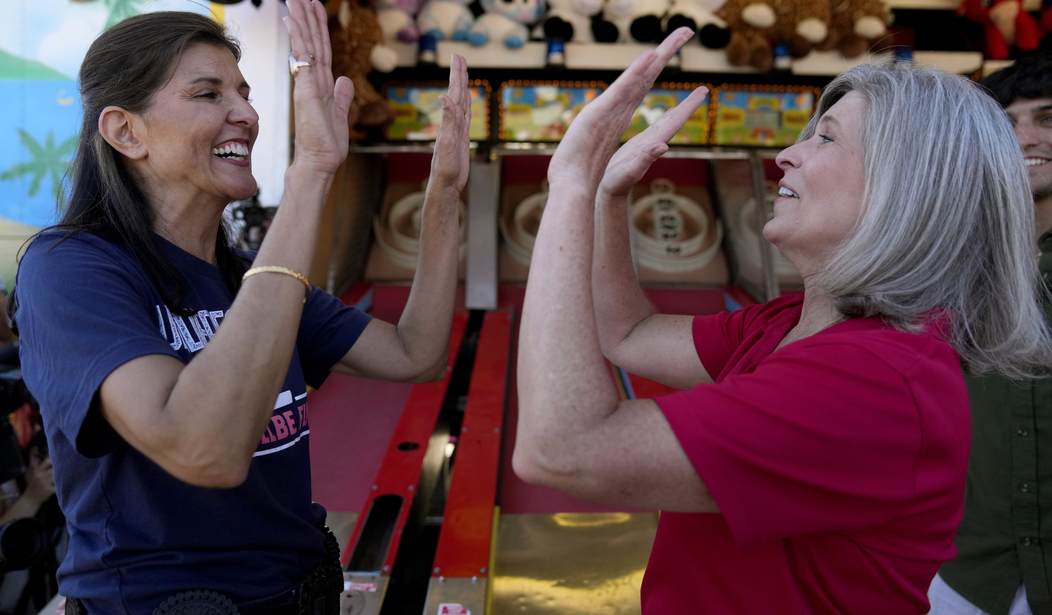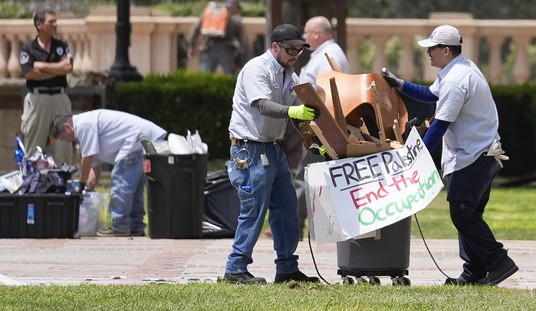Former South Carolina governor and UN ambassador Nikki Haley is rising at just the right time in the GOP race for the nomination.
Nationally, Haley has yet to break through and come close to challenging Donald Trump. But in some key early states, Haley has made significant movement as two strong debate performances and the Israeli-Hamas war becoming a campaign issue have allowed GOP voters to give her a second look.
In New Hampshire, Haley has gone from pulling three percent of the vote to almost 16 percent. In Iowa, she went from an asterisk to more than 10 percent of the vote. Florida Governor Ron DeSantis is no longer targeting Donald Trump in his campaign. He’s attacking Haley.
And there are increasing calls from establishment Republicans for the GOP presidential candidate field to narrow considerably and leave one candidate left to challenge Trump. And that candidate is Nikki Haley.
What’s the point? Trump has a 50-point lead, right? The point is that Donald Trump is facing 91 criminal charges. It doesn’t matter if you think they’re bogus, trumped-up, or part of a plot to destroy the former president. The charges are real no matter what anyone thinks. And Trump will have to go through at least four criminal trials before it’s all said and done.
Do we know what Republican voters will think if Trump is convicted and sentenced to prison? Of course we don’t know and speculating is fruitless. But the situation of voting for a convicted felon is not unprecedented.
In 1978, the founder of the Congressional Black Caucus, Rep. Charles Diggs, was tried and convicted of fraud in a scheme to give kickbacks to employees. A month after he was sentenced to prison, he was re-elected to Congress.
Congress censured Diggs in 1979, and he resigned in June of 1980. The question of what Trump would do if he was tried and convicted in his various trials is wide open.
Haley supporters believe that leaves her front and center as the best alternative to Trump. Whether that’s true or not is also a wide-open question.
“It’s coming at a great time for her,” said Whit Ayres, a longtime Republican pollster. “Sometimes the direction of movement is as important as the absolute level of standing — and she’s going up, while the other candidates are either going down or remaining flat.”
Despite Trump still leading the rest of the field by as many as 50 points nationally and 30 points in the early states, Haley is now the main reason DeSantis can no longer declare the primary a “two-man race.” She has closed in on DeSantis, surpassing him in New Hampshire and South Carolina, and is slowly gaining on him in Iowa, despite the Florida governor barnstorming the state throughout the summer and investing significantly more there than Haley.
Since the first debate, Haley has caught fire with New Hampshire voters, rocketing from 3 percent in August to as high as 19 percent recently and solidly in second place.
“The rise is real,” Ayres said. “It reflects her debate performance in the first two debates, but also her performance on the stump.”
Haley’s only realistic chance at the nomination would come if the field is winnowed to her and Trump. Otherwise, there would be a repeat of 2016 with the non-Trump candidates splitting the vote several ways and preventing any challenger from gaining on the front runner.
Until that happens, the Haley candidacy should be seen as an interesting side story to the Trump campaign.










Join the conversation as a VIP Member